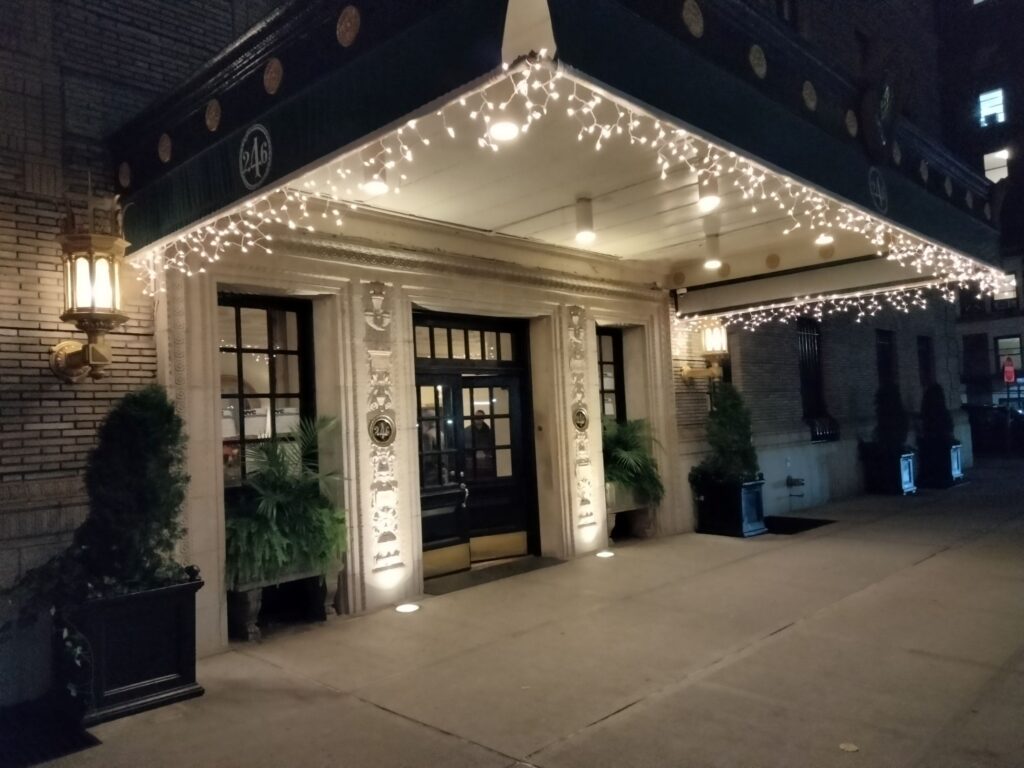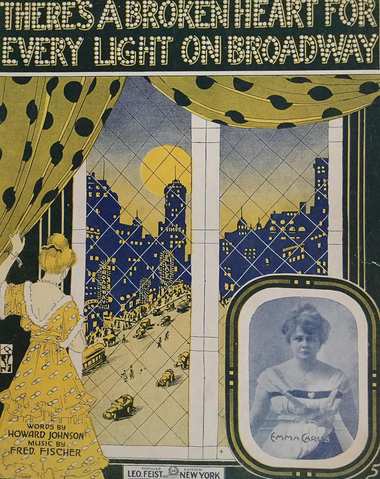Frank, the birthday/retirement boy, thanked one of his grandsons for the bottle of blue aftershave.
«Your grandmother raves about Aqua Velva! How did you know?»
Another present was an IOU from his younger brother Gene, who wished to treat him to golf where Gene lived in their native state of Connecticut. Frank could tell that Mary, Gene’s wife, chose the card, wrote the appropriate sentiment and, after Gene had dashed off his signature, likely mailed the card as well. Successful in «beverages», Gene was first an accomplished schmoozer and last a Ben Hogan. A business associate who was a Yale alum had put in a good word at the university’s highly regarded golf course, which opened for play in 1926. Living hundreds of miles away in Western Pennsylvania, Frank did not play golf unless asked by his boss. Tom, the first-born, sent a monogrammed silver lighter and telephoned his good wishes. A sister, Mary Ellen, had died of tuberculosis at age 17 years, 3 months, 4 days. Frank was relieved when Ann, his fellow empty nester and «better half», as he called her, offered to accompany him until the golf started, leaving behind her friends, piano, sheet music, radio, sewing machine and shopping lists. She packed quickly, evidence of the truth of her claim about stitching a suitcase into the family coat-of-arms, if the family had a coat-of-arms, an honor in truth of no value to her, a matter rather for people who were «full of notions.» On this occasion, her one stipulation before motoring into the unknown:
«Aqua Velva and I don’t mix.»
Ann did not mix with the wheel of Frank’s 1955 Chevrolet Bel Air either, though she did choose its color. «My husband and I are co-owners of the car,» she would say with a wink. «And of our marriage.» As an insurance claims adjuster, Frank had had to be on the road more than either of them wanted him to be. Investigations were conducted in person, or «in the field», as he expressed it, an homage to his deceased father, a shade-tobacco farmer who had struggled to pay the bills. Over the years and miles, Frank’s car radio placed him on a first-name basis with nationally syndicated shows (Jack Benny, Bob and Ray, Fibber McGee and Molly) as well as Pittsburgh’s own shows on KDKA (Uncle Ed Shaughency and Rainbow, Farm Hour, Cordic & Company, Art Pallan and Bill Steinbach). Indeed, until 1956, his company and KDKA were in the same building. Frank had to find a personal connection with claimants in their own homes, which was not made easier by the delicate nature of cases or the industry’s terminology: indemnification, loss frequency, moral hazard, preferred risk, pure risk, situs of contract, umbrella and excess, vicarious liability, and so on and so forth. He was known as a non-judgmental listener. During meetings with the boss, who used the language of golf to direct his employees, Frank had been urged to «pitch-and-run»—to «scramble»—to have a «strong grip». Shanks, swaying, whiffs and the yips led to trouble for everyone.
The journey to Connecticut was by way of Manhattan, where Ruth, the younger of two daughters, was an aspiring actress. Ann enjoyed trips along the Pennsylvania Turnpike as much as ones down Fifth Avenue. At Blue Mountain, police lights pulled up behind them, forcing Frank to steer the Bel Air to the side of the highway. After dialing down the car radio’s volume—the Platters’ The Great Pretender happened to be playing—Ann told the patrolman that her husband—the handsome man in the driver’s seat—was a pediatrician rushing to an emergency C-section. The violation turned out to be traveling too slowly.
«It wasn’t exactly lying,» the «pediatrician» diagnosed after the officer let them go with a warning. «We have forms at the office with a C-section.»
Later, under the weather vane, cupola and orange sherbet roof of the Valley Forge Howard Johnson’s, Ann did not fail to applaud the black raspberry ice cream as if the aqua-uniformed waitress had made it herself. Nor did she did boast that her homemade rhubarb pie was better than HoJo’s, because HoJo’s had not dared to introduce a rival to hers.
«Your physiognomies look so grammatical.»
This was Ruth’s greeting for her parents as she peered into the Bel Air parked outside her apartment building on West End Avenue.

Ruth explained that she had to stay in character in anticipation of her audition for the role of Mrs. Malaprop in Richard Brinsley Sheridan’s 1777 comedy The Rivals. Quoting the playwright, she stated it was an «intricate» production and therefore her «retrospection was all to the future». Ann was happy for her daughter, who as a girl sang on KDKA in the very building where her father worked. By way of leading by example, the Gotham native premiered her own coup de théâtre; she had choreographed a tour of genteel apartment buildings that she had always admired from sidewalks. She and Frank would pose as prospective buyers, with Ruth cast as their «Irish maid».
«It would be very inelegant in us—we should only participate things.»
That said, Ruth insisted on being a Ms. Malaprop maid. After some bargaining over Ann’s three-hander in 18 acts/properties, the performers settled on four. Without blowing their cover, they reached a terrace of the Beresford at Central Park West between 80th and 81st and launched a paper airplane surreptitiously toward Shakespeare Garden below Belvedere Castle. In the courtyard of the Belnord at West 86th between Broadway and Amsterdam, Frank was a sound engineer from Carnegie Hall. «Here to test the echo!» was Ruth’s cue to declaim, and for the Belnord to answer:
«He is the very pineapple of politeness!»
At Hotel des Artistes on West 67th between Central Park West and Columbus, Frank ad-libbed to a real-estate agent that Ann played piano and sang at the Lucerne Hotel at West 79th and Amsterdam, which earned him a raised eyebrow and pursed smile from the intended beneficiary of the compliment. He started to hum a tune himself.
There’s a broken heart for every light on Broadway.
Strolling west-bound on West 67th, the trio sang the rest of the song, even upon reaching Broadway itself.
Oh, let me live on Broadway, where the lights are all a-glow,
Where ev’ryone seems happy in the crowds that come and go,
Thus speaks the foolish dreamer, and he prays his dream come true,
But he’d never leave the village if he knew.
 The graceful curve of the Colosseum at 116th Street and Riverside Drive turned their heads. Their reactions would have looked stagey if they were not so visibly sincere. They were sold.
The graceful curve of the Colosseum at 116th Street and Riverside Drive turned their heads. Their reactions would have looked stagey if they were not so visibly sincere. They were sold.
«I suppose it will do,» enunciated Ann with an English accent. She had adopted a French accent in the Beresford and a German one in the Belnord.
Gene greeted them at the Victorian Gothic Phelps Hall, Yale’s main entrance. He mopped his brow with a hankie and made much of coming «all the way» from Columbia to New Haven, before whispering to Ann.
«My first choice for Frank was a trip to Havana.»
«Your first choice for yourself,» Ann replied sotte voce, «to increase your store of adventures set in Havana.» Aloud she asked, «Why New Havana? I mean, New Haven?»
«Yale, of course!» Gene replied, giving Frank a hearty slap on the back. «Someone I know remembers a Go Bulldogs! pennant in our childhood bedroom. Who knows how it got there!»
Unfolding a map of New England, Gene pointed to stars marking prominent golf courses.
«You may never see your Frank again! See, the Taft! The Griswold!»
«Swanky hotels with well-stocked bars,» Ann observed dryly.
«With golf courses, according to the map, dated, er, 1917,» Gene replied, unfazed.
«He’s been studying that thing since we were kids,» explained the victim of the kidnapping. «Somehow he found it in the kind of showy magazine you don’t find on a farm.»
Hearing about the apartment-hunting subterfuge, Gene proposed a tour of Yale «disguised» as potential donors. He would be a Rockefeller. Frank would be a Frick. (The Frick coke and steel fortunes had Pittsburgh origins.) Ann would be an Astor. (A cousin had been an Astor nanny.) Ruth would be a Ms. Malaprop maid. When the time came to act their parts, they were disappointed to face no resistance, no audience. No authorities asked what their business was at Sterling Library, which they had entered as hushed congregants in the belief that it was a Gothic cathedral. They got lost in Rudolph Hall, the new art and architecture building, which somehow had 30 floor levels in its seven stories. Ruth got to see the outside of the School of Drama.
At the golf course, which was off campus, an affable starter at the cedar shake clubhouse believed Gene’s story that their green fees had been paid on campus at the Commons, whose uncommon grandeur had moved them and where they were warned that the food was the same as is commonly served to students in Peoria.
«We can play for free,» whispered an amazed Gene, as he slipped his favorite «stick» into his brother’s bag of rental clubs. «Effectively they have an honesty box.»
For the entire round, Frank would worry about being caught for not paying, which resulted in extra mulligans. On the first tee, Ann played at presenting a lecture.
«The course occupies 720 acres of the former Marvelwood estate,» she informed them, «owned by a Yalie who worked for Singer Manufacturing Company before starting a business making sewing machine attachments. Now, class, please open my book about sewing machine attachments to page 1,898.»
«A nice derangement of epitaphs» counted as «Bravo!» for Ann’s scholarly eloquence.
Frank, fumbling to balance a ball on a tee, invited his «better half» to take a swing.
«Ah, few gentlemen nowadays know how to value the ineffectual qualities in a woman,» Ruth reflected. «Men have no sense now but for the worthless flower of beauty.»
Gene seconded his brother by presenting Ann with a hickory driver.
«You have the honour.»
They played the scene as if flourishing a sword during a moment of truth.
In the end, Gene paid for the walk around the former Marvelwood because he saw how his scofflaw «joke» pained Frank. Alone, the brothers became as familiar as in former days when the ambition of each was to «leave the village he knew», as the song went. Frank listened willingly to Gene’s explications of the rules of golf: level of penalty (one stroke, two strokes, loss of hole, loss of match) and type of relief (free, stroke, distance, lateral). Both smiled that Frank could find a good thing to say about a scorecard marked with double digits: She of the suitcase would approve of the holes called Biarritz and Alps. He was relieved to reach no. 18, called Home.
On the train to Manhattan, mother and daughter managed an unrehearsed table reading of The Rivals, interrupted by the announcement of stations along the way. For each of them, the names evoked personal histories, left unsaid.
«Fairfield! Westport! Darien!»
They took turns with different parts. If Ruth would not be Mrs. Malaprop, she might be offered one of the other characters.
«Rye! Harlem-125th Steet! Grand Central Station!»
After bargain-hunting in Midtown, they joined the crowds under the Theater District lights.